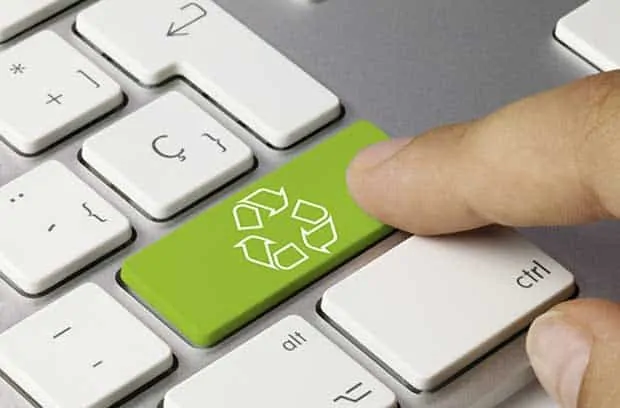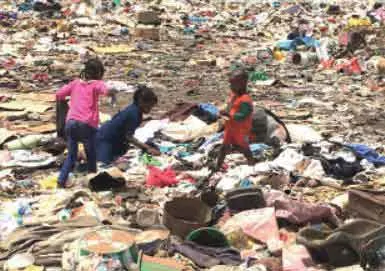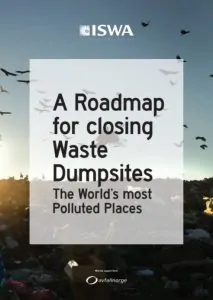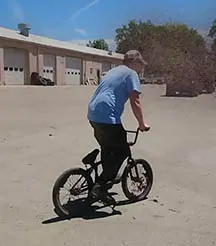


In lieu of the 2020 Joint Solid Waste and Recycling Conference scheduled for October 28-30, SWANA is offering educational sessions as a webinar series with CEUs available from August through November. Register for just a few or pay one flat fee to participate in as many as you would like.
This week’s Webinar is on Thursday, September 10 at 10:00 am ET, 1 CEU.
Webinar Schedule and Registration
The men and women of the solid waste industry have been continuing their jobs throughout the COVID-19 pandemic. In recognition of their hard work and sacrifice, SWANA is collaborating with Glad to support sanitation workers across the United States and Canada personally affected by COVID-19 through the Sanitation Workers Support Fund (Fund). The Fund is providing financial assistance to eligible front-line solid waste and recycling collection workers in the United States and Canada adversely impacted by COVID-19.
“The solid waste industry is considered essential, and its workers have been on the front line, without failure, making sure waste is collected and disposed of since the onset of COVID-19. This fund is an important recognition of their contribution to our communities, and is a way of providing support when they are personally impacted by the pandemic,” stated Suzanne Sturgeon, Health & Safety Program Manager for SCS Field Services and SWANA Safety Committee Chair.
Lindsey is an employee-owner at SCS Engineers on the solid waste management team performing Construction Quality Assurance – CQA and reporting for field projects, as well as OM&M on landfills and assisting with landfill reporting and compliance.
Lindsey earned her BS in Soil and Waste Resources—Waste Management from the University of Wisconsin—Stevens Point in the Summer of 2018. She currently serves on the SWANA Badger Chapter Board and is co-YP Liaison, plus participates in SCS’s Young Professionals program.

The Gambia, is a tiny sliver of a country in West Africa, has a population of just under 2.5 million. About a fourth of the country’s population is under the jurisdiction of the Kanifing Municipal Council (KMC) – the most densely populated area of The Gambia. The people and leadership of the Kanifing municipality are united in their desire to have positive changes in solid waste management in the community and at the Bakoteh dumpsite. Ideally, solving the problem will implement a means of positive change for many aspects of the KMC citizens’ lives.

Municipalities and their private sector partners will experience high costs, especially in residential collections to cover all of the costs incurred as workers transition to working from home. FEMA can help protect public health and safety by committing to cover the costs of essential services provided that aren’t paid by the service recipients.
The National Waste & Recycling Association (NWRA), and the Solid Waste Association of North America (SWANA) have both sent letters to Federal Emergency Management Agency (FEMA) Administrator Peter Gaynor requesting that the agency establish a system to compensate the waste and recycling industry for providing services to protect public health and safety that otherwise would go unpaid during the COVID-19 outbreak.
NWRA says it also shared copies of the letter with Vice President Mike Pence, who is leading the nation’s COVID-19 response task force, and the House Subcommittee on Emergency Preparedness, Response and Recovery, which has oversight of FEMA.
Solid waste management is identified as an essential critical infrastructure workforce in the Department of Homeland Security’s Cybersecurity & Infrastructure Security Agency’s (CISA) March 19, 2020 memo, and has been listed as essential in every emergency order issued at the state level in response to the COVID-19 pandemic, and in city and county responses as well.
“Providing these essential services to those unable to pay as a result of economic hardships caused by COVID-19 while continuing to employ the workforce needed to support such an effort will require assistance,” NWRA President and CEO Darrell Smith writes in the NWRA letter.
“Since both the public and private sectors collect and manage solid waste and recyclables, SWANA’s letter asserts that all sanitation departments, haulers, and post-collection companies providing services during the COVID-19 pandemic without being paid for them should be eligible for reimbursement,” said SWANA Executive Director and CEO David Biderman.
Darrell Smith points out that FEMA can establish a vehicle under disaster debris management plans or by other alternative direct compensation means as selected by the agency to compensate the waste and recycling industry for providing uncompensated services to protect public health and safety during this time of national emergency.
Both NWRA and SWANA specifically ask for funding to cover services provided in the U.S. related to customer bad debt and other uncompensated costs incurred for services being provided to the public during the national emergency.
Despite the many impacts on our lives right now, our thanks go to the many public and private solid waste management employees, and organizations such as SWANA and the NWRA, for continuing to serve our communities to keep them clean and safe nationwide. Solid waste management is definitely an essential service on the frontline.
Voting for the Old Dominion Chapter’s 2020-2021 Board of Directors ended December 13, 2019. After tallying the votes, the following professionals were elected as new Directors, including:
Congratulations!
Ryan Duckett is a Project Professional working out of SCS’s Midlothian, Virginia office. He is responsible for Sustainable Materials Management, or SMM, solid waste facilities and municipal planning solutions. Ryan also supports environmental engineering projects related to permitting, compliance, regulatory reporting, landfill gas modeling, construction quality assurance (CQA), and pollutant emission inventories at solid waste management facilities. Ryan is an active member of the SCS Engineers Young Professional Program that connects our young professionals with others providing community support, altruistic efforts, mentoring, networking, and social activities.
Virginia’s Solid Waste Association of North America (SWANA) organization works to advance environmentally and economically sound municipal solid waste management in Virginia. The “Old Dominion” Chapter as it is known consists of over 300 professionals actively working in the solid waste field throughout the Commonwealth. The membership represents the largest cross-section of solid waste managers, operators, and consultants in Virginia.
The Chapter seeks to foster networking and cooperation among solid waste professionals, including regulators and provides educational opportunities to enhance members’ expertise in the solid waste management field. Members carry out a variety of activities and programs to establish innovative research programs in the publics’ interest, scholarships and technical assistance. Learn more about membership on their website – http://www.swanava.org/.
ISWA, a worldwide organization, promotes and develops professional waste management to protect human health and the environment as well as to ensure sustainable resource management.
The International Solid Waste Association (ISWA) General Secretariat announced the reelection of James Law for a second term as a board member representing the Organization Members of ISWA. His second term begins on October 6, at the ISWA General Assembly held during the 2019 World Congress in Bilbao, Spain. He is currently the Chair of the ISWA Working Group on Landfill and the Task Force on Closing Dumpsites Initiative as well.
Mr. Law has been a member of ISWA for 11 years. He became active after attending a World Congress conference in Singapore as a presenter and a trainer at the Landfill training workshop on how to use HELP modeling. “I love to attend and network at the annual World Congress, it is such a rewarding and educational experience with the world top experts in waste management and sustainability,” said Law.
James Law, PE, BCEE, LEED AP BD+C, SC, IWM, and SCS Engineers’ National Expert for Geotechnical and Landfill Engineering, has over three decades of engineering and management experience in geotechnical engineering and subsurface soil investigation – exploration programs (including landfill slope stability, embankment and MSE Wall evaluations), solid waste management, landfill engineering, and closure design. Mr. Law’s solid waste management experience also includes landfill gas collection and utilization as alternate energy expertise.
He has a commendable public-service record and contributes widely and regularly to industry associations and non-profits holding the International Status certification as an International Waste Manager by ISWA. James Law is recognized globally for his work toward the remediation and closure of open dumps; imperative to mitigate the impact on the environment and adverse effects on public health.

Law regularly speaks and publishes papers at national and international conferences, as well as serving on the Editorial Board for the ISWA WM&R publication as a reviewer and author. His recent editorial article on “ISWA’s Closing Dumpsites Initiative: Status of Progress” co-authored with Dave Ross was published in the 2019 WM&R publication, Volume 37 (6).
Girish Kumar, Illinois Land of Lincoln Chapter, attending the University of Illinois at Chicago is the 2019 Robert P. Stearns – SCS Engineers Scholarship recipient. The SWANA scholarship is for students entering or already enrolled in a graduate program and pursuing a degree in environmental science, engineering, or other major related to solid waste management.
Kumar’s research offers an alternative to the conventional landfills in the form of bioreactor landfills, where the collected chemical liquid derived from waste degradation and other permitted liquids recirculate into the landfills. The recirculation systems enrich the moisture conditions and accelerate waste degradation, which is beneficial to enhancing biogas production and early waste stabilization.
Kumar works at the Sustainable Engineering Research Laboratory and the Geotechnical & Geoenvironmental Engineering Laboratory, on a project to develop a practical and reliable coupled thermo-hydro-bio-mechanical model. The model can enable safe design and the operation of stable, effective and sustainable-engineered landfills.
Congratulations, Girish!
Learn about this SWANA Scholarship and more.
SCS Engineers’ Associate Professional, Lindsey Carlson recently coordinated a cleanup on the Beaver Dam River in Wisconsin. The cleanup is a part of the mission of Living Lands and Waters to clean the nation’s major rivers and watersheds. The Adopt A River Mile program enables people to support the mission in their own communities. SCS Engineers joined other members of the SWANA Badger Chapter, the Associated Recyclers of Wisconsin, and five members of the Beaver Dam community. SCS’s Adam Gorski and Phil Gearing are shown removing a tractor tire and other debris here.
Phil called the experience “a great time and very fulfilling.”
While getting wet and muddy, the team picked up trash and debris that filled one 5’x8’ utility trailer plus two pickup truck beds – that’s about 8 cubic yards for those not in the waste management industry 😉
The trash included a tractor tire; about seven car tires; an aluminum truck topper; an office chair; two bicycles (one still ridable); a motorcycle helmet; at least 15 feet of culvert piping; about 10 trash bags full of plastic bottles and other lightweight garbage; and quite a few other miscellaneous items.

Lindsey served as a volunteer on Living Lands and Waters’ barges during a week-long cleanup in Memphis in 2017, and “that’s how I came to know and become passionate about their cause,” she says.
Contact Living Lands and Waters to clean up your mile of river. Every mile makes a difference to help watershed conservation efforts in your community. Imagine the impact thousands of volunteers of all ages, willing to roll up their sleeves and get dirty are making. Thank you!
See you in Nashville! SCS Engineers